Ecuador Admits to Cutting Off WikiLeaks Founder’s Internet Because of Podesta Emails
The web access of Julian Assange (pictured) was intentionally shut down by Ecuadorean government officials, who felt the WikiLeaks founder was interfering in the U.S. presidential election. (Updated)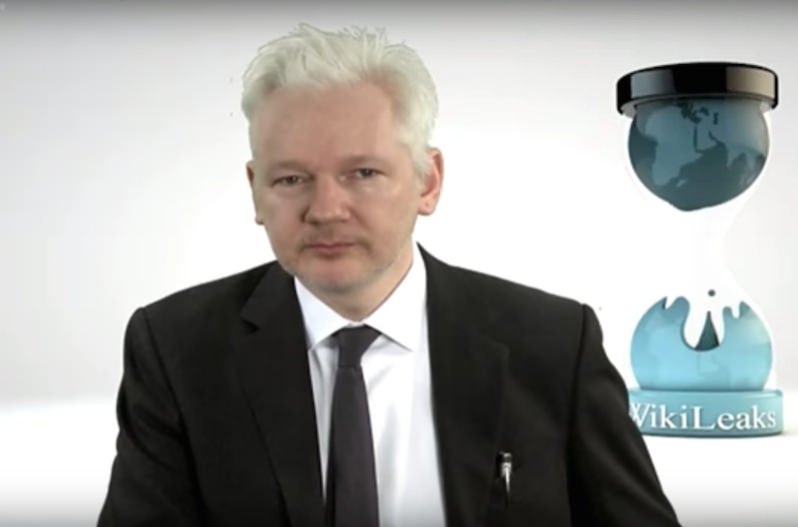
Julian Assange appeared via video on the Dutch television program “Nieuwsuur” earlier this year. (Screen shot via YouTube)
UPDATE 10/19/2016 (4:02 A.M. PDT):
Ecuador has owned up to the deed and has issued a statement saying it decided to cut off Julian Assange’s internet access to keep him from interfering in the U.S. elections. According to The Guardian:
Ecuador has confirmed that it has temporarily cut off internet access in its embassy in London to Julian Assange, the founder of the whistleblowing site WikiLeaks, over fears that he was using it to interfere in the US presidential election.
The move followed the publication of leaked emails by WikiLeaks, including some from the Democratic National Committee (DNC) released just before the party’s convention in July, and more recently a cache of emails from the account of Hillary Clinton campaign adviser John Podesta.
On Tuesday, officials released a statement saying that the government of Ecuador “respects the principle of non-intervention in the internal affairs of other states” and had cut off the internet access available to Assange because “in recent weeks, WikiLeaks has published a wealth of documents, impacting on the US election campaign”.
The statement also reaffirmed the asylum granted to Assange and reiterated its intention “to safeguard his life and physical integrity until he reaches a safe place”.
You can check out the Ecuadorean government’s full statement in the tweet below:
Official Communiqué | Ecuador respects the principle of non-intervention in the internal affairs of other states ??https://t.co/4F7R5Iktsd pic.twitter.com/5FtbLViMEo
— Foreign Affairs Ec (@MFAEcuador) October 18, 2016
— Posted by Natasha Hakimi ZapataPosted Oct. 18:
WikiLeaks has once again become the center of political controversy because of its seemingly nonstop release of emails related to Hillary Clinton’s presidential campaign. But over the weekend, the transparency organization made headlines for a different reason: claims that founder Julian Assange, who has lived in asylum at the Ecuadorean Embassy in London since 2012, was the target of various forms of suppression.
The drama began with a WikiLeaks tweet Sunday:
Julian Assange’s internet link has been intentionally severed by a state party. We have activated the appropriate contingency plans.
— WikiLeaks (@wikileaks) October 17, 2016
Although this claim sparked a frenzy of internet comments, WikiLeaks followed up Monday with more information:
We can confirm Ecuador cut off Assange’s internet access Saturday, 5pm GMT, shortly after publication of Clinton’s Goldman Sachs speechs.
— WikiLeaks (@wikileaks) October 17, 2016
According to The Guardian, “It is not yet known what Ecuador’s motivation was for cutting his Wi-Fi,” but “[a] source in the [Ecuadorean] government told the Press Association: ‘We don’t respond to speculation circulating on Twitter. Ecuador will continue to protect Julian Assange and uphold the political asylum granted to him in 2012.’ ”
Speculation about Assange’s status continued Tuesday, when WikiLeaks presented another claim involving the suppression of Assange:
BREAKING: Multiple US sources tell us John Kerry asked Ecuador to stop Assange from publishing Clinton docs during FARC peace negotiations.
— WikiLeaks (@wikileaks) October 18, 2016
The John Kerry private meeting with Ecuador was made on the sidelines of the negotiations which took place pricipally on Sep 26 in Colombia.
— WikiLeaks (@wikileaks) October 18, 2016
The U.S. State Department quickly refuted the allegations, The Associated Press reports:
“While our concerns about Wikileaks are longstanding, any suggestion that Secretary Kerry or the State Department were involved in shutting down Wikileaks is false,” U.S. State Department spokesman John Kirby said in an email. “Reports that Secretary Kerry had conversations with Ecuadorean officials about this are simply untrue. Period.”
WikiLeaks did not return repeated messages seeking comment. Staff at the embassy declined comment. Guillaume Long, Ecuador’s foreign minister, approached by The Associated Press on the sidelines of a United Nations conference in Quito on Monday, declined to comment when asked about Assange. His office later released a terse statement in response to “the speculation of the last few hours,” reaffirming Assange’s asylum status and saying that “his protection by the Ecuadorean state will continue while the circumstances that led to the granting of asylum remain.”
The statement made no mention of Assange’s internet access.
WikiLeaks’ allegations—that Assange’s internet access was disconnected and that Secretary of State John Kerry once played a role in trying to silence Assange—come after a particularly crucial dump of emails related to the Clinton campaign. On Saturday, WikiLeaks published an email containing three full speeches that Clinton was paid to give to a private Goldman Sachs audience. Clinton’s campaign responded to the leak by citing potential Russian involvement, a strategy it has continued to rely upon in the face of thousands of leaked documents. CNN reports:
“There is no getting around it: Donald Trump is cheering on a Russian attempt to influence our election through a crime reminiscent of Watergate but on a more massive scale,” Glen Caplin, a Clinton campaign spokesman, said Saturday. “We’re witnessing another effort to steal private campaign documents in order to influence an election.”
And The Telegraph writes, While denying any connection with a Russian hacking campaign, Assange has refused to disclose WikiLeaks’ sources for hacked Democratic [National Committee] messages.”
WikiLeaks also took to Twitter to blast mainstream media coverage of its recent allegations, retweeting a CNN segment in which an anchor states that “it’s illegal to possess these stolen documents.”
While living in the Ecuadorean Embassy, Assange has repeatedly appeared via video link to make speeches and utilize the internet as one of his only forms of communication with the outside world. The most recent batch of Clinton campaign emails has incited further allegations of corruption between the FBI and the State Department.
—Posted by Emma Niles
Independent journalism is under threat and overshadowed by heavily funded mainstream media.
You can help level the playing field. Become a member.
Your tax-deductible contribution keeps us digging beneath the headlines to give you thought-provoking, investigative reporting and analysis that unearths what's really happening- without compromise.
Give today to support our courageous, independent journalists.

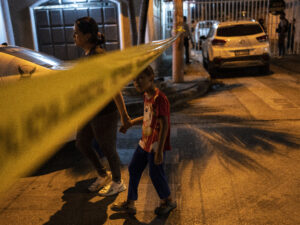
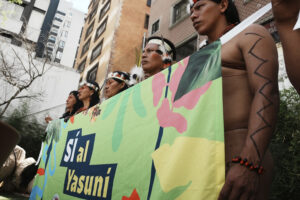
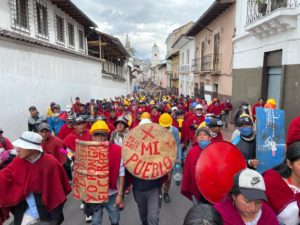
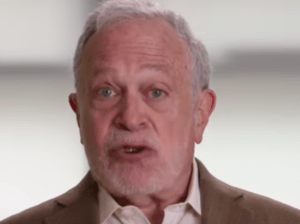
You need to be a supporter to comment.
There are currently no responses to this article.
Be the first to respond.